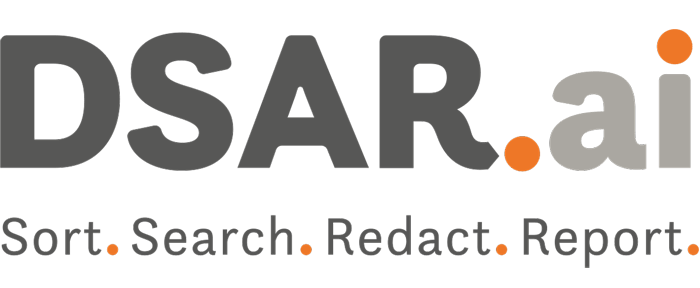
How to Prepare a Defensible DSAR File in 2025
Regulators now expect DSAR files to tell a complete story—where you searched, what you found, what you withheld, and why. This blog outlines how to create a DSAR file that is transparent, proportionate and defensible from the ground up.

DSARs in 2025: How AI Is Transforming Search, Redaction & Compliance
AI is transforming how DSAR teams search, triage and redact personal data—but DUAA makes human oversight more important than ever. This blog explains what 2025-ready DSAR workflows really look like.
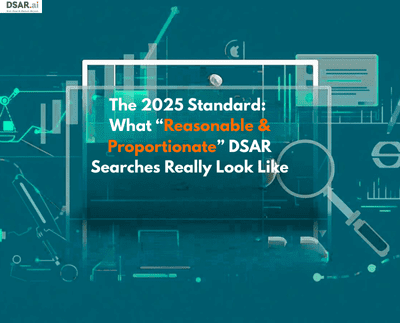
The 2025 Standard: What “Reasonable & Proportionate” DSAR Searches Really Look Like
“Reasonable and proportionate” is now a legal requirement under the 2025 DSAR reforms. This blog breaks down what it actually means in practice — how to scope searches, where to look, what to exclude, and how to document decisions in a way that stands up to ICO scrutiny.
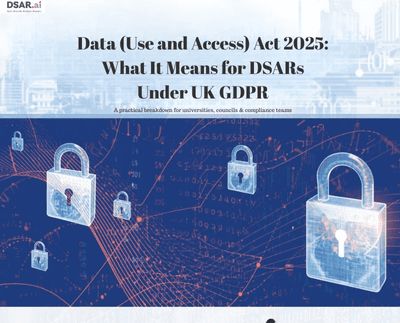
Data (Use and Access) Act 2025: What It Means for DSARs Under UK GDPR
DUAA 2025 doesn’t replace UK-GDPR, but it changes how organisations search, redact and respond to DSARs. Here’s what the new rules mean in practice — and how teams should adapt.
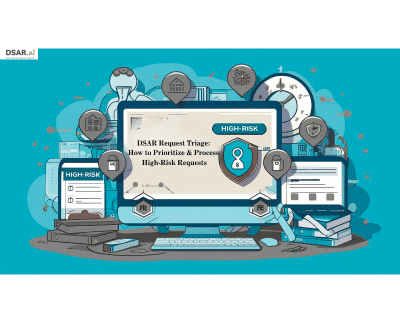
DSAR Request Triage: How to Prioritize & Process High-Risk Requests
Managing Data Subject Access Requests (DSARs) is no longer a back-office task—it’s a compliance priority. With strict GDPR deadlines and rising request volumes, treating every DSAR the same creates bottlenecks and risk. The solution? A structured triage process. In this blog, we explore how DSAR.ai automates intake, risk categorization, and priority routing so compliance teams can identify high-risk requests early, streamline workflows, and stay audit-ready without adding manual workload.

What Is a Reasonable DSAR Response? Navigating ‘Proportionate Search’ in 2025
In 2025, DSARs aren't about checking every system—they’re about checking the right ones. With the UK’s DUAA and stricter EU enforcement, privacy teams must master the art of the “reasonable and proportionate” search. This blog breaks down what regulators actually expect, how DUAA diverges from GDPR, and how to build a workflow that’s efficient, defensible, and built for real-world scale.

DSAR Automation: How to Cut Response Times by 70% Without Compromising Compliance
In 2025, manual DSAR handling is a liability. As privacy regulations tighten and request volumes surge, forward-thinking organizations are turning to automation to cut DSAR response times by up to 70%. This blog explores how AI-powered platforms streamline data discovery, redaction, and compliance workflows—without sacrificing legal defensibility. Learn what true automation looks like, how to choose the right tool, and why speed now equals trust in the DSAR era.

DSARs in 2025: Trends, Tactics, and Legal Shifts Every Privacy Leader Must Know
In 2025, Data Subject Access Requests (DSARs) are no longer routine compliance tasks—they’re strategic flashpoints for legal risk, brand trust, and operational efficiency. With DSAR volumes surging, multimedia data complicating responses, and global laws like the UK’s DUAA reshaping expectations, privacy leaders must evolve fast. This blog unpacks the key trends, legal shifts, and smart tactics shaping DSAR strategy in 2025—and how automation is no longer optional.
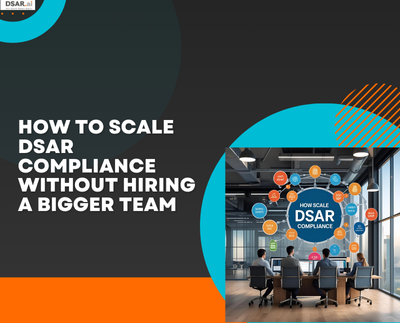
How to Scale DSAR Compliance Without Hiring a Bigger Team
Scale DSAR response without extra hires. Automate intake, redaction, and delivery to stay compliant and protect your team from burnout.
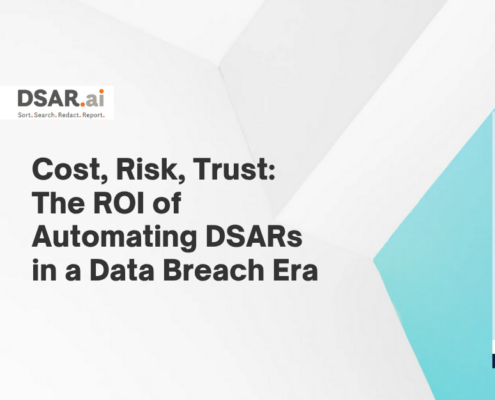
Cost, Risk, Trust: The ROI of Automating DSARs in a Data Breach Era
Special categories of personal data—such as unstructured manual records, health, educational, and social work data—come with specific challenges when responding to Data Subject Access Requests (DSARs). UK businesses and public authorities must be aware of the unique compliance requirements for each category, particularly regarding cost limitations, search obligations, and exemptions, to avoid falling short of GDPR standards.
 020 8004 8625
020 8004 8625